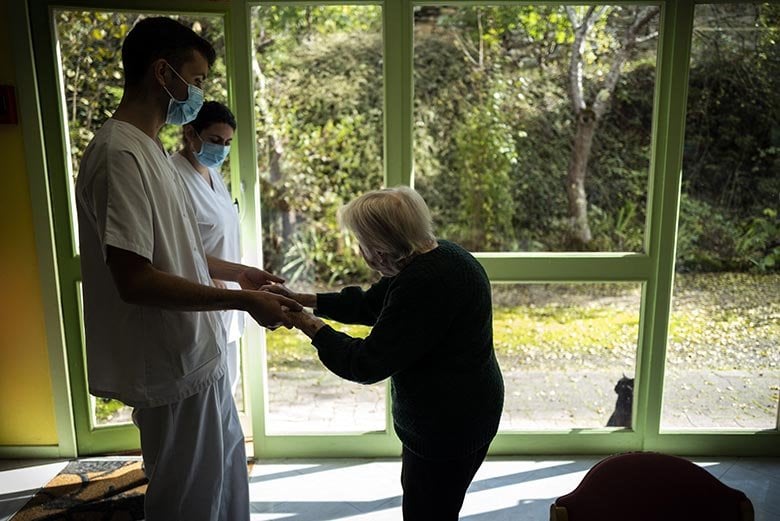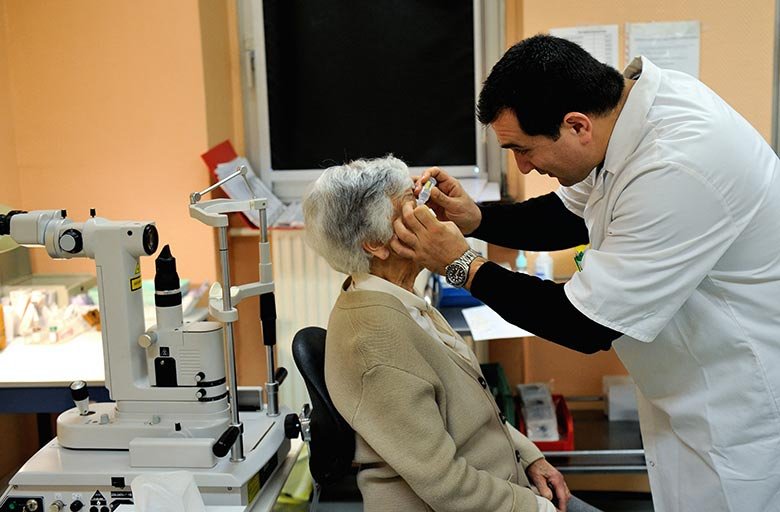Medical research: now more than ever, support for all fields is essential
For over 50 years, Fondation de France and many of its donor-advised funds have stood by the side of researchers. With the Covid-19 crisis, medical research is now headline news. While the health emergency created a massive mobilization, other fields of research must not be neglected.
An unknown virus emerges, there is no treatment or vaccine…and all of the planet’s societies and economies teeter. If we ever needed proof of the importance and impact of medical research, the Covid-19 crisis supplied ample evidence. Similarly, it showed the importance of philanthropy’s role in this public interest issue, as it fosters the exploration of new paths, and supports audacious strategies.
Medical research has been a theme at Fondation de France since its beginnings. One of Fondation de France’s first donor-advised funds was created in 1969 by the children of Antoine Béclère, to carry on the work of this radiology pioneer. Since then, medical research continues to mobilize numerous philanthropists. Today, 123 donor-advised funds are committed to this subject. “From the beginning of the Covid epidemic, it was clear that we should participate in this extraordinary research effort, which mobilized scientists to combat the crisis,” explains Dr. Nathalie Sénécal, head of the Health and Medical Research department at Fondation de France. The Tous unis contre le virus (United Against the Virus) alliance, uniting Fondation de France, Paris hospitals and the Institut Pasteur, made it possible to support over 40 research projects for a total of 8.4 million euros.
“Over 40 research projects on Covid-19, supported under the framework of the United Against the Virus alliance.”
In under two months, the alliance chose their projects, in association with the French National Research Agency. “The goal was to cover a vast spectrum of themes,” notes Dr. Nathalie Sénécal. “Understanding the virus and its basic mechanisms, of course. But also research on treatments at each phase of infection and their effects, such as epidemiological analyses to understand the epidemic’s dynamics or its impact on care and carers.”
Urgent questions…and long-term issues
Some work has produced short-term results, like the Nanodrop project (French National Center for Scientific Research/Sorbonne University). Using mathematical models, the project endeavors to explain the propagation of droplets containing SARS-CoV-2 in the air, essential information for establishing protective measures and secure distances in social settings. Other projects explore long-term issues. Such as the question of the after-effects of the illness, in particular for patients who were in intensive care. This is the case for the DOUCOVID study, led by Inserm (National Institute of Health and Medical Research), which aims to measure and better understand one of the complications of Covid-19: chronic pain that continues for over three months. There is also the CAPACO study, led by the Hospital Center and University of Reims, which followed a group of patients that had been in intensive care and rehab. The study’s goal was to identify any non-respiratory effects of the illness that impact the digestive, neurological, renal, and other systems. Among other things, the fight against Covid-19 involves research in epidemiology, to understand how the virus spreads, what measures can slow its dissemination, or how to build collective immunity. This last question is at the heart of Professor Arnaud Fontanet’s work at the Institut Pasteur. For one year, his team will follow the population of the town of Crépy-en-Valois, in the Oise department, where the virus was very present and was the site of the first death due to SARS-CoV-2. “From so-called ‘hard’ sciences to social sciences, from fundamental research to applied research, by associating different fields…Covid has shown just how indispensable the multidisciplinary approach is to medical progress today,” stresses Dr. Nathalie Sénécal.
 Inserm’s DOUCOVID studies chronic pain in Covid-19 patients who were hospitalized in intensive care.
Inserm’s DOUCOVID studies chronic pain in Covid-19 patients who were hospitalized in intensive care.
This mix of skills and expertise can be found in all fields of medical research supported by Fondation de France and its donor-advised funds. But there is a risk that the energy mobilized by the current crisis will weaken other major areas of research. We know that people with cancer, or chronic or degenerative illnesses are suffering collateral damage from the epidemic, with delays in diagnosis and surgery. “And on the research level, lockdown measures and a slow-down in financial support also made life difficult for some teams,” notes Fanny Ledonné, head of the Medical Research Program. “Several young researchers alerted us to the difficulties they were having. Without the support of philanthropy, their work risked being cut short.” Fondation de France and its donor-advised funds made sure to follow through on support for these teams.
“Niches” with potential
Increasingly sophisticated and complex, research is also increasingly costly, and public funding is often not enough to cover all needs. Faced with so many different research possibilities, how do you choose? “Whether it’s donor-advised funds or programs led by Fondation de France, our volunteer expert committees seek to identify projects with strong potential, often before public funding,” explains Dr. Nathalie Sénécal. “We assume the risk in supporting highly innovative approaches, which will then move on to find public resources.”
 Eye disease is a major public health issue: 250 million people around the world suffer from a serious visual impairment.
Eye disease is a major public health issue: 250 million people around the world suffer from a serious visual impairment.
This was the case with Fondation de France’s Eye Disease Program, which supports this strategic, yet under-financed field. As the population ages and lifestyles evolve, with overexposure to screens and underexposure to natural light, some 250 million people around the world already have serious visual impairments, and their numbers continue to increase. Over the last thirty years, the committee has supported close to 200 projects, including that of Muriel Perron Université Paris-Saclay, who works with stem cells that may be able to reconstruct cells destroyed by age-related macular degeneration (AMD), by studying equivalent mechanisms in frogs.
"In France, 1.5 to 2 million people suffer from a major visual impairment."
- Marc Labetoulle, President of the Eye disease committee -
The same philosophy dominates in the field of oncology, a cause that has mobilized 19 donor-advised funds. For example, the Imagine for Margo Foundation is dedicated to research on pediatric cancers and the development of treatments adapted for children. The Cancer Program, for its part, is focusing on resistance to treatment, which is an issue for a third of all patients. “Resistance is a mechanism that is essentially genetic in origin,” explains Professor Vahid Asnafi, director of the research laboratory in onco-hematology at Necker Hospital and president of the Cancer Committee. “We support work that aims to identify the genes responsible for these resistances and to block them, by using the natural immunity dynamic. We already have made encouraging progress, especially on childhood leukemia.”
"The Covid Crisis has made us late!"
- Professor Vahid Asnafi, president of the Cancer Committee -
Whereas every program and every foundation is developing comprehensive expertise and very specific skills, everyone is also very attentive to the discoveries made during research on SARS-CoV-2. Because the main scientific concepts are cross-cutting and can be applied to different fields. Like messenger RNA treatments, known for the Covid-19 vaccine. “They were initially thought of for treating certain types of cancer that are resistant to other types of treatment,” notes Fanny Ledonné. “And we are closely following strategies for stimulating the immune system with this medication.”

